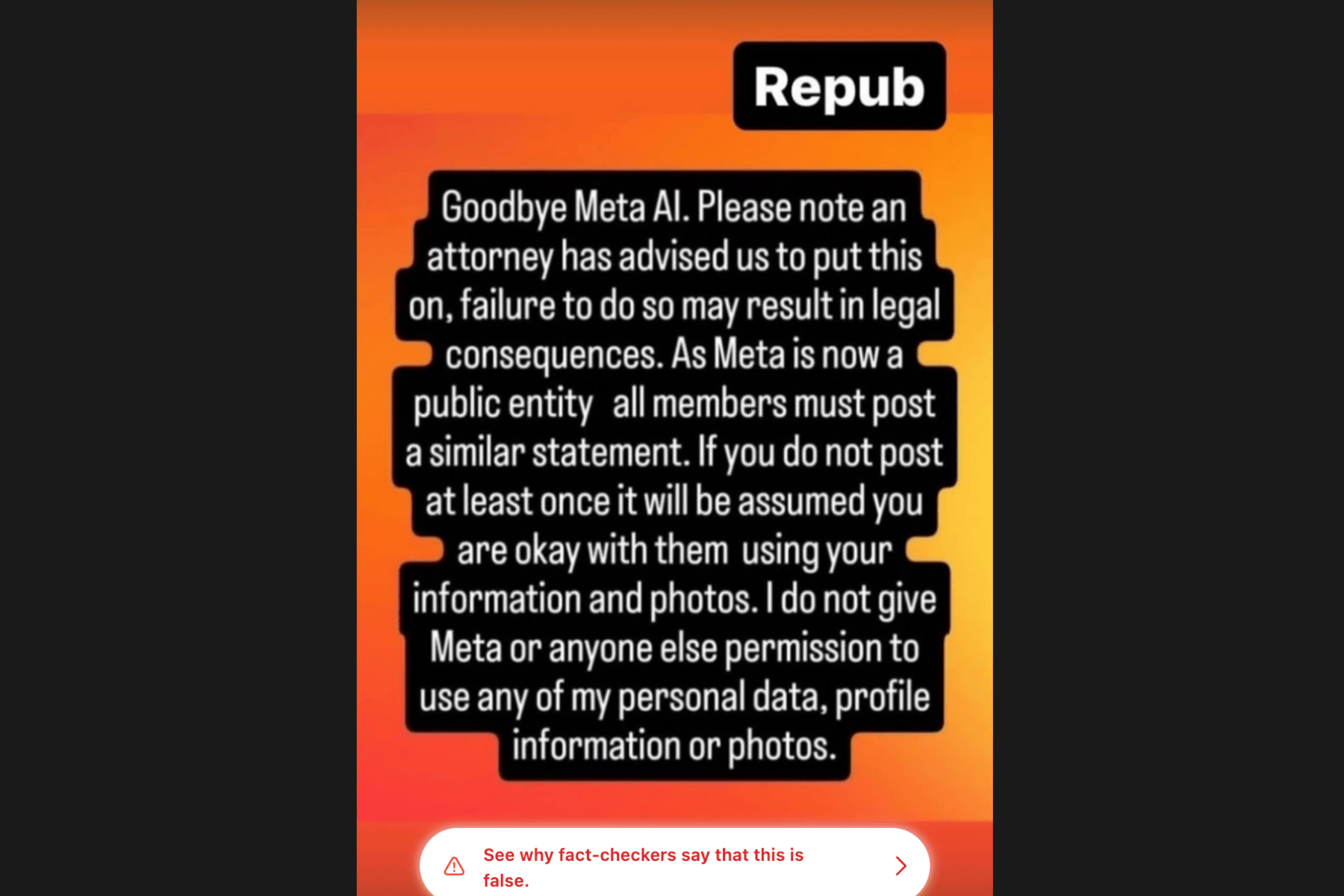“Goodbye Meta AI.” You may have seen these words posted on Facebook or Threads or most likely Instagram, where a viral story template has been shared by more than 500,000 users who seem to think that they’re prohibiting the social media giant from using their personal information.
“Goodbye Meta AI,” the wall of text, often shared as a screenshot on Instagram and as a copied-and-pasted post on Facebook and Threads, reads. “Please note an attorney has advised us to put this on, failure to do so may result in legal consequences. As Meta is now a public entity all members must post a similar statement. If you do not post at least once it will be assumed you are okay with them using your information and photos. I do not give Meta or anyone else permission to use any of my personal data, profile information or photos.”
[time-brightcove not-tgx=”true”]
Many celebrities—from actress Julianne Moore to reportedly former NFL quarterback Tom Brady—are among those who have reshared the message. But now, on Meta’s platforms, such posts are accompanied by a note flagging it as “false” information and linking to an article titled “‘Legal’ Statement Does NOT Protect User Data From Meta’s Generative AI — It’s Made Up” by Facebook third-party fact-checking partner Lead Stories.
According to Lead Stories, social media users started noticing the spread of the “Goodbye Meta AI” copypasta—a chunk of text that’s widely spread on the internet—at the beginning of September.
Former American Idol contestant and drag queen Ada Vox warned her followers on Facebook on Sept. 7 to stop sharing the message, saying: “Hackers use posts like that to target gullible and vulnerable people to find the easiest profiles to get into. … You are only putting a target on your back for hackers by sharing and making those ridiculous posts. The people at the highest risk for this are the older generation, so if you see them posting that, let them know.”
Read More: Welcome to the Golden Age of Scams
It’s not the first time such a privacy hoax has been spread, with similar ones on Facebook reported as far back as 2012. In May, another copypasta claiming to bar Meta from using people’s personal data was debunked by fact-checking website Snopes, which said that Facebook users can’t “retroactively negate the privacy or copyright terms they agreed to when they signed up” or alter new privacy terms “simply by posting a contrary legal notice on their account.”
As for actually preventing Meta from scraping your data to train its generative artificial intelligence models, that’s a bit more complicated. Earlier this year, the company sent notifications to users in Europe informing them that it planned to use their content to help develop AI features and giving them a chance to opt out. But it only did so because of Europe’s strict tech regulations. In other parts of the world—including Australia, India, and the U.S.—users were not notified of any change, and it’s unclear how long Meta has been scraping social media posts to train its AI.
According to a Meta press release last September, the company use “publicly shared posts from Instagram and Facebook—including photos and text” to train its models but not “private posts” or “the content of your private messages with friends.” A Meta spokesperson told MIT Technology Review in June that users who don’t want their content to be scraped can minimize that risk by turning their accounts private.
Meta did not immediately respond to TIME’s request for comment.

